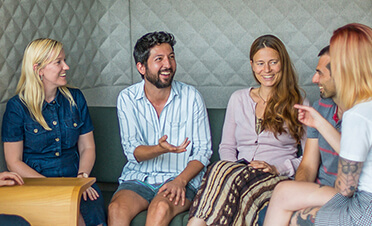Postdoctoral Fellow – Improving Immuno-oncology therapies by optimising immune synapse dynamics and T cell serial killing activity – 3 year fixed term contract
Postdoctoral Fellow – Improving Immuno-oncology therapies by optimising immune synapse dynamics and T cell serial killing activity – 3 year fixed term contract
The Discovery Centre, Cambridge Biomedical Campus, Cambridge, UK
Competitive salary and benefits
Introduction to role
Do you have expertise in, and passion for, T cell biology, advanced imaging, sequencing approaches, and novel immunotherapies? Would you like to apply your knowledge to unravel fundamental aspects of T cell anti-tumour responses and be part of the next generation of immunotherapy agents in a company that follows the science and turns ideas into life-changing medicines? Then join the Immune Cell Engagers department at AstraZeneca and unlock the power of what science can do!
In this exciting Postdoctoral Fellow position, you’ll research the mechanisms by which T cell engagers (TcEs) impact cytotoxic T cell (CTL) immune synapse dynamics and contribute to T cell serial killing activity within human tumours. This is a fantastic opportunity for a skilled and motivated candidate to enrol in a Postdoctoral Programme which balances highly translational and fundamental research in immuno-oncology with a strong scientific career development structure.
Accountabilities
This project is supported by the Immune Cell Engagers (ICE) group that focuses on translating scientific advances into novel immunotherapy agents to treat cancer. Multi-functional collaboration across diverse groups at AstraZeneca enables the combination of brand-new machine learning, engineering, bioinformatics, patient-oriented models, and innovative imaging to transform drug discovery and development to deliver better medicines to patients.
Intratumoural T cell infiltration positively correlates with favourable response to cancer immunotherapy. Remarkably, even in these hot tumours, T cells are outnumbered. Thus, a single CTL must sequentially kill several targets – a phenomenon commonly referred to as serial killing, to achieve efficient tumour elimination. This cardinal feature of CTLs has been overlooked and seldom studied at the single-cell level. Furthermore, how immunotherapies can modulate CTL serial killing activity remains largely unexplored.
This project will conduct pioneering research in T cell serial killing potential of immunotherapies at the single-cell level by exploiting advanced imaging approaches combined with novel machine learning tools, sequencing technologies, and 3D patient-oriented tumour models. Our Postdoctoral Fellow will collaborate with experienced AZ interdisciplinary scientists with diverse backgrounds and an exceptional academic mentor specifically aligned to the project, to elucidate how the design parameters of T cell engagers influence CTL immune synapse dynamics, as well as the ensued gene expression and chromatin accessibility profiles and their contribution to T cell activity or dysfunction.
This research aims to illuminate fundamental aspects of T cell physiology, contributing to the rational design of the next generation of immuno-oncology agents. Join us in shaping the future of cancer treatment through this pioneering project.
Supported by Simon Dovedi, Executive Director & Head of Immuno-Oncology Discovery, Bruno Frederico, Associate Principal Scientist, and Mar Cabeza Cabrerizo, Senior Scientist at AstraZeneca, you'll also receive academic mentorship and guidance from Caetano Reis e Sousa, Principal Group Leader and Assistant Research Director at the Francis Crick Institute.
Our Postdoctoral Fellow will conduct ground-breaking research using in vitro model systems to assess how diverse T cell engagers impact immune synapse dynamics and serial killing activity of engaged CTLs. You will employ state-of-the-art imaging approaches in conjunction with machine learning tools to assess how T cell engagers (either individually or in combination with other immunotherapies) can modulate the spatiotemporal dynamics of individual CTLs and their ability to kill multiple tumour cells. You will then exploit a barcoding tracing system to unravel the gene expression and chromatin accessibility profiles of serial killer T cells. By employing 3D patient-oriented tumour organoids that closely mimic the complex immunosuppressive environment of human cancers, your research will provide crucial insights into how these findings can be translated into real-world cancer therapies.
• Research, design, and employ experimental systems to investigate how modulation of TcEs design parameters impacts immune synapse dynamics and contribute to individual cytotoxic T cell serial killing activity of tumour cells.
• Lead and drive the project under the supervision of a cross-functional AstraZeneca team and in collaboration with the academic expert.
• Work collaboratively with the wide AstraZeneca scientific community and with the Immune Cell Engagers Team.
• Plan, write, publish, and present high-quality scientific papers.
Essential Skills/Experience
• PhD degree (or equivalent) in Immunology, Immuno-oncology or equivalent and expertise in T cell activation
• Experience with Imaging approaches and cytotoxic T cell killing assays
• Good knowledge of single cell RNA seq analysis concepts and pipelines
• Highly inquisitive, motivated and desire to translate ideas and biological concepts into therapeutic approaches
Desirable Skills/Experience
• Proven knowledge of one or more of the following areas: Immunology, T cell biology, TCR signalling, Immune synapse biology, microscopy, bioinformatics
• Excellent written and oral communication skills
• Strong planning, organisational and time management skills
• Ability to work effectively in a multi-disciplinary research environment
AstraZeneca offers an inspiring environment where you can work with diverse minds united by a shared passion for learning, growth, and discovery. Our scientific community seamlessly fuses academia and industry, working inclusively together. We celebrate successes and learn from each other while providing exposure to build meaningful careers. With female leaders in 45% of senior roles internally and 475 pre-clinical collaborations across 26 countries externally, we are committed to expediting research in some of the hardest-to-treat cancers.
Join us on this exciting journey by applying today!
AstraZeneca embraces diversity and equality of opportunity. We are committed to building an inclusive and diverse team representing all backgrounds, with as wide a range of perspectives as possible, and harnessing industry-leading skills. We believe that the more inclusive we are, the better our work will be. We welcome and consider applications to join our team from all qualified candidates, regardless of their characteristics. We comply with all applicable laws and regulations on non-discrimination in employment (and recruitment), as well as work authorization and employment eligibility verification requirements.




